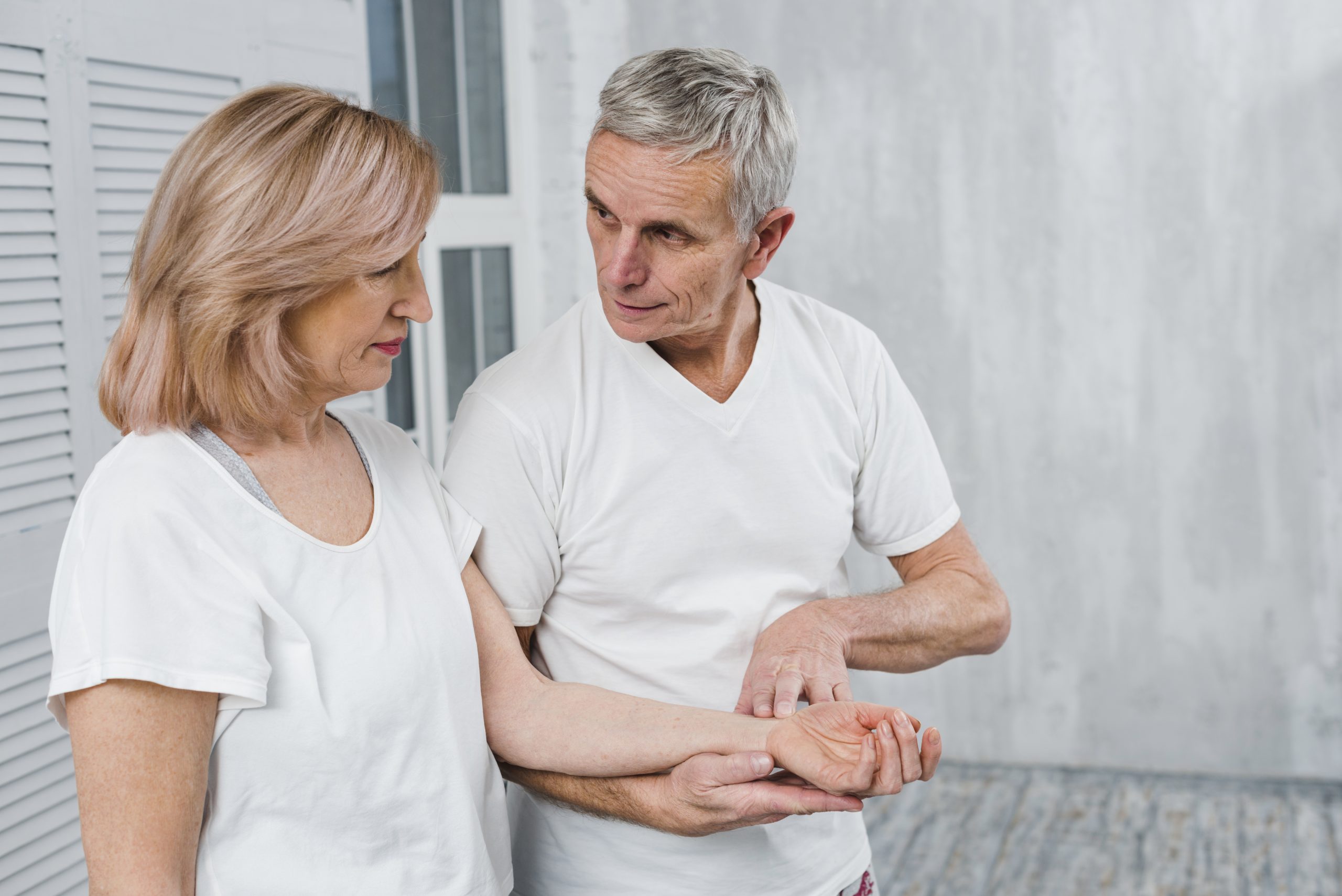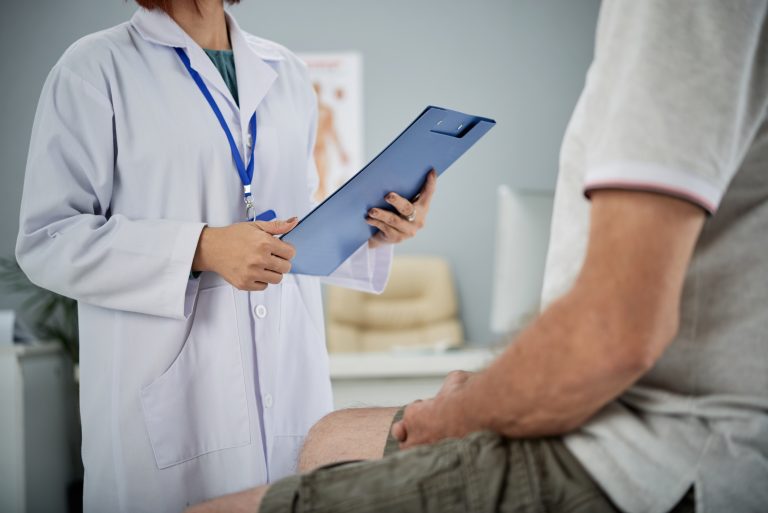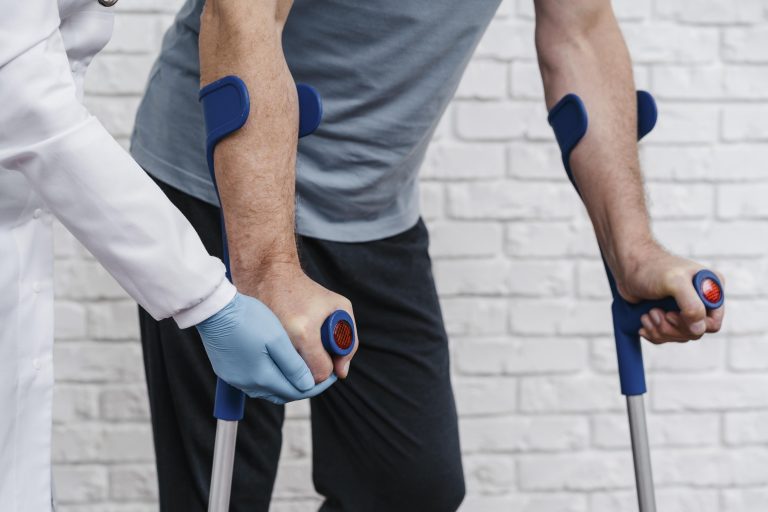Knee pain can be frustrating, limiting mobility and affecting daily activities. While many assume knee pain is caused by issues in the knee joint itself, the spine often plays a significant role. Problems in the lower back, particularly in the lumbar spine, can lead to knee discomfort, weakness, or instability. Understanding this connection is crucial for effective treatment and long-term relief.
At Spinal Recovery Center in Warren, MI, we specialize in diagnosing and treating spine-related issues that may contribute to knee pain. If you’re in Sterling Heights, Troy, Roseville, Madison Heights, or Clinton Township, our team can help determine the root cause of your discomfort and provide personalized treatment options.
Understanding the Spine-Knee Connection
The human body operates as an interconnected system, meaning that an issue in one area often leads to complications elsewhere. The connection between the spine and the knees primarily involves nerves, posture, and alignment.
1. Nerve Pathways and Referred Pain
The lumbar spine houses nerves that extend down the legs. If a spinal condition compresses or irritates these nerves, pain can travel to the knees. Common conditions that cause referred knee pain include:
- Herniated Discs – A slipped or bulging disc in the lower spine can press on nerves that affect the knee.
- Sciatica – Compression of the sciatic nerve, which runs from the lower back to the feet, can cause knee pain or weakness.
- Spinal Stenosis – Narrowing of the spinal canal can put pressure on nerves, leading to discomfort in the knees.
- Degenerative Disc Disease – The gradual wearing down of spinal discs can lead to inflammation and pain that radiates to the lower limbs.
2. Posture and Misalignment
Spinal misalignment can lead to poor posture, which affects weight distribution on the knees. If your spine is not properly aligned, you may unknowingly place excessive stress on one knee, causing discomfort over time. Common postural issues that impact the knees include:
- Pelvic Tilt – An imbalanced pelvis can cause one leg to bear more weight than the other, leading to knee pain.
- Hunched Shoulders and Forward Head Posture – Poor posture shifts the body’s center of gravity, increasing strain on the knees.
- Flat Feet or Overpronation – Improper foot alignment often results from spinal issues, affecting knee function and stability.
3. Muscle Weakness and Imbalances
The spine is central to core strength, which plays a major role in lower body stability. If the lower back muscles are weak, the quadriceps, hamstrings, and calf muscles may overcompensate, leading to knee strain. Addressing spinal strength can help relieve unnecessary stress on the knees.
How Chiropractic and Physical Therapy Can Help
Since knee pain and spinal health are closely linked, treating the root cause—rather than just the symptoms—is key. At Spinal Recovery Center, we offer personalized treatment plans that address both spinal health and knee pain. Our services include:
Chiropractic Adjustments
By realigning the spine, chiropractic care helps improve posture, relieve nerve compression, and promote better weight distribution across the knees.
Physical Therapy
A customized physical therapy plan can strengthen core muscles, correct imbalances, and improve mobility, ultimately reducing strain on the knees.
Massage Therapy
Therapeutic massage reduces muscle tension and promotes circulation, helping to alleviate pain caused by nerve compression or muscle imbalances.
Spinal Decompression Therapy
For patients suffering from herniated discs or spinal stenosis, spinal decompression therapy can help relieve pressure on nerves and reduce referred pain to the knees.
Postural Training and Lifestyle Adjustments
We educate our patients on proper posture, ergonomics, and exercises to prevent future pain and maintain spinal health.
When to Seek Treatment
If you experience persistent knee pain that does not improve with rest or over-the-counter remedies, it may be time to seek professional care. Warning signs that your knee pain could be spine-related include:
- Knee pain accompanied by lower back pain or stiffness
- Numbness, tingling, or weakness in the legs
- Pain that worsens with prolonged standing or walking
- Discomfort that does not respond to traditional knee treatments
Get Expert Help in Warren, MI
If you’re dealing with knee pain and suspect it may be related to your spine, our team at Spinal Recovery Center is here to help. We proudly serve patients in Warren, Sterling Heights, Troy, Roseville, Madison Heights, Clinton Township, and surrounding areas.
📍 Location: 28295 Schoenherr Rd, Warren, MI 48088
📞 Call us at: (586) 573-8100
🌐 Visit our website for more information or to book an appointment: SpinalRecoveryCenter.com
Don’t let knee pain hold you back—schedule a consultation today and take the first step toward lasting relief!




